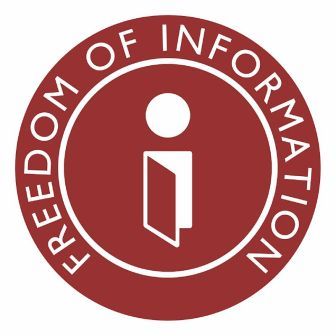Sierra Leone chases an access to information law
Published in July last year, this piece is being reproduced, with additional information by the author, with a view of actually examining the level gone in the campaign for an access to information law in Sierra Leone. Ernest Koroma is continuously making history; from allowing an independent commission that tackles corruption, to setting up one that addresses youth problems (National Youth Commission) and also towards enacting a law that guarantees access to information. I need not overstate the point that the governance ratings of Ernest Koroma will definitely improve in the coming years. The simple fact, in fact, that today, the government is being brought closer to the people, through its policy of public communication means a lot for our democratic credentials.
IB Kargbo, Information Minister, key to President Koroma’s government
Anne Hammerstad, in a work, titled, ‘African Commitments to Democracy in Theory and Practice, A Review of Eight NEPAD countries’ states that , “…good political governance can be defined as the sum of the institutions, processes and policies that are conducive to human development and rights…” .The right to Freedom of Information is one of several processes and policies that a government could adopt in ensuring human development and rights. The promotion of democratic governance requires the need for an access to information law, especially in Third World countries where it is perceived that corruption and the lack of transparency in governance are part of the day-to-day running of a state. Governance calls for the participation of the citizenry in the decision making process; it ensures that everybody becomes part of the administration of the state.
The concept of access to information dictates that information held by public officials is held in the interest of the public and as such the public should have right to access such information. When this occurs in a democracy, it enables the people to hold their government to account, and at the same time, it ensures that the government remains open, especially in government spending. An FOI law can at the same time help sow the seeds of good governance by promoting government transparency and accountability and also facilitating greater public participation in government decision-making. Giving people the legal right to access information on government’s activities can strengthen democracy by making government directly accountable to its citizens on a day-to-day basis, than just at election time.
The relevance of access to information can even be related to election time; an FOI law would ensure that the electorates have better access to information concerning the government’s record in office, allowing them to make a more informed decision at the ballot box. This is so especially in African politics where ethnic inclination is often considered by people when casting their votes. It is relevant to note also that access to information ensures dialogue between citizens and their governments, and through this dialogue, it can promote an effective means of ensuring that there are effectiveness developments
It also helps media practitioners in their duty. It allows for an in-depth investigation into national issues, and also prevents ‘speculative journalism’. Indeed, a freedom of information law is of great importance to democracy and good governance. Freedom of information is a foundational human right, and it has long since been recognized as such, since the UN General Assembly in 1946 declared that “freedom of information is a fundamental human right and a touchstone of all freedoms to which the United Nations is consecrated.” It is sad to note, however, that around the world not many countries have enacted freedom of information. In a country like India, their 2005 Right to Information Act provides all citizens with the right to access public held information, held by local governing bodies, central government and other public institutions.
The United Kingdom is one of the most developed nations in the world. It enacted an access to information law since 2000, although the law did not come into effect until 2005. The law itself applies in England, Ireland, as well as United Kingdom government bodies operating in Scotland. The law grants all individuals the right to access public held information. The Canadian federal access to information act commenced in 1983.
Sierra Leone has not been left behind in the campaign for access to information. It was in 2005 that a group of civil society bodies, under the umbrella body of the Freedom of Information Coalition, Sierra Leone drafted the first and only Freedom of Information Bill in Sierra Leone. The Society for Democratic Initiatives has over the years been taking leadership in the campaign for access to information. Over the years the coalition managed by a group of young Sierra Leonean civil society activists, headed by one Emmanuel Saffa Abdulai, has been knocking at the doors of politicians, lobbying for the bill to get the needed attention from the government. It has held meetings with parliamentarians, members of the executive arm of government among other bodies. It should be noted that if the bill is to become an Act, it must get the support of the government.
In 2008, the Coalition of Freedom of Information activists presented the draft bill to President Ernest Bai Koroma and his commitments towards the need for the enactment of the bill were very encouraging. This was one big success for the Coalition, since when he was in opposition, the current President did promise to give due consideration to the call for an access to information law in the country.
Alhaji Ibrahim Ben Kargbo is Information Minister for this new APC government. He has been a journalist and has standing years of experience in journalism. He has seen the good, bad and ugly parts of the profession. He knows access to information is relevant not only to journalists, but also to government. There is a well known fact about IB Kargbo; he has been a fine spin doctor for the Ernest Koroma government; he has succeeded in selling the image and policies of his government to the admiration of even his colleague ministers.
From what he once told me, his government ‘still sees the need for access to information as part of the reform process and a policy of government that the bill should be enacted within the first term of our office’. I also called him up yesterday to talk on latest development regarding government’s commitment to the process of enacting the law. IB Kargbo told me, ‘this is part of the governance reform process and we are still committed to it…
On what has been done so far, he said, ‘it has been gazette…going through the process and we have sensitized the public and we shall have a pre-legislative discussion on it after the debate on the President‘s speech..So within weeks, we expect to have this law…’ The Information Minister spoke of this plan by civil society people but for him, ‘there is the need for us as a government to give weight to the issue by ensuring we put our hands together…’ And so far there has been the complete support of government in this direction.
However, I will encourage the government, through the Minister of Information not to forget the issue of proper and efficient record keeping in both private and public institutions so as to enhance reliable access to information law for the country. The need for the physical structures like libraries, archives and research centers are all central to the call for an access to information. This government, from what IB Kargbo said, holds the view that the concept of freedom of expression as contained in the 1991 Constitution cannot be efficiently pursued when the citizens are not given the right to access public held information. He is mindful that like other countries, there are exceptional cases to access to information, and this, the government should take into consideration when getting the Act debated by our law makers.
I am definitely going to take Minister IB Kargbo by his words that the efforts of government to get an access to information law in the country is part of their reform process and that, it is bound to happen within their first term in office. The commitment of the government towards an access of information law should be seen as practical as the need for the law itself. It is of importance that it helps in the promotion of democratic governance.
Stay with Sierra Express Media, for your trusted place in news!
© 2010, https:. All rights reserved.






